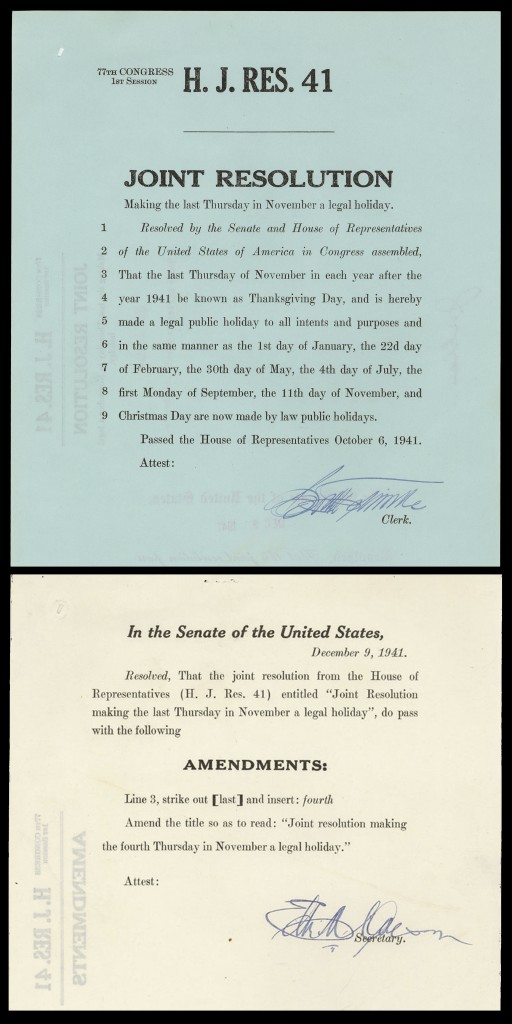Nov
12

Marketing had a good deal to do with establishing Thanksgiving on the fourth Thursday of November. With the holiday around the corner, this seems like a good time to revisit the controversy. (Yes, there was one.) Originally posted November 20, 2017.

THE FOURTH THURSDAY of November is a legal holiday in the United States. Designated as a national day of thanks, it is named, appropriately enough, Thanksgiving.
Observing Thanksgiving in autumn has been around since the early 17th century. An act of Congress signed on October 6, 1941 established it as a legal holiday and designated the last Thursday of November as the day.
Which, believe it or not, caused a controversy. Larger merchants argued for establishing the fourth Thursday, fearful that in years in which November had five Thursdays, the last Thursday would leave too little time for Christmas shopping. (This was long before Christmas sales began popping up in September.) Meanwhile, smaller merchants liked the idea of reduced shopping time, hoping to attract shoppers unwilling to put up with too-crowded department stores. Adding to the tumult were not a few citizens who objected to letting commercial concerns move their holiday.
The matter was finally settled two months later, when on December 26, 1941 President Franklin D. Roosevelt signed H. J. Res 41. Henceforth the legal holiday would be on the fourth Thursday.
Thanksgiving is a popular time for authors who like debunking tales of “the first Thanksgiving.” True enough, most of the stories we learned in grade school are exaggerated, whitewashed, or outright fabricated. Dig around and you’ll find that the original meal bore no resemblance to today’s feast, and that, overall, the interaction between European immigrants and Native Americans is more to be regretted than celebrated.
History aside, I like the idea of setting aside one day—at least one—to ponder what has gone right for us. Whether we stumble into opportunities or make them, we must at some level concede that something out of our control put us in the right place at the right time, not to mention gave us the wherewithal and skills needed to seize it. Remembering as much can ground.
I do not embrace the cliché that everyone has something to be thankful for. There are many who mourn, and it is not for me to insult them with a pep talk. Nor do I embrace relative gratitude, the idea of feeling blessed because there exist people not as well off. It is not another’s ill fortune that makes mine good. Recognizing that there are less fortunate people serves best when it motivates empathy and compassion.
Now, please pass the gravy.